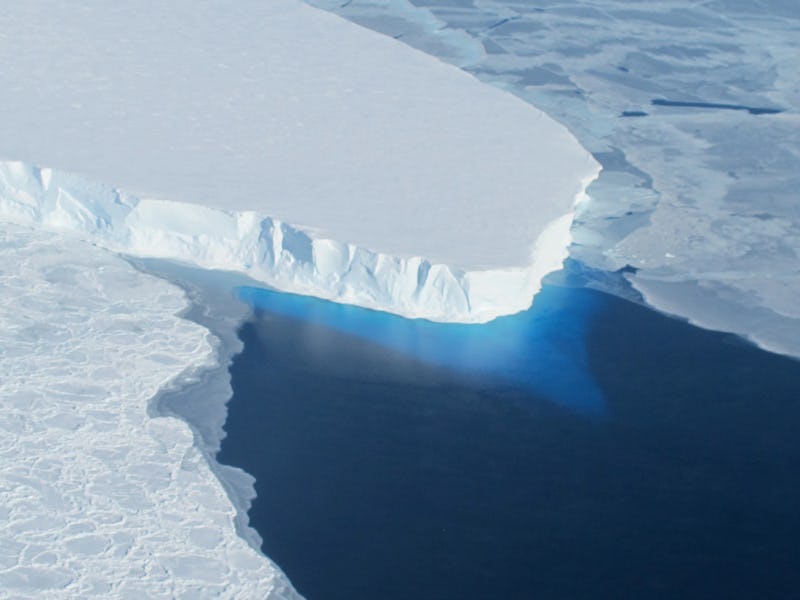Antarctica Scientists Present Two Drastically Different Forecasts for 2070
This is an ultimatum.

There’s no question that Antarctica is getting screwed by climate change, but now scientists say the situation is getting demonstrably worse. In a massive study published Wednesday in Nature, scientists reveal that the rate at which Antarctica is losing ice has more than doubled since 2012, causing a sharp increase in global sea level rise. Another study published alongside it lays out what will happen if we do or don’t save Antarctica, giving two frightening glimpses into what Earth could look like in 2070.
We can do one of two things: clean up this mess or ride our gas-chugging SUVs into the apocalyptic sunset. According to the paper “Choosing the Future of Antartica,” either scenario will lead to a drastically different 2070. To create these two possible trajectories — which are presented as “plausible alternative futures” rather than forecasts — the international team compiled projections from established climate and ice sheet models and historical data.
“Some of the changes Antarctica will face are already irreversible, such as the loss of some ice shelves, but there is a lot we can prevent or reverse,” explained study-co-author and Imperial College London professor Martin Siegert, Ph.D. in a statement released Wednesday. “To avoid the worst impacts, we will need strong international cooperation and effective regulation backed by rigorous science. This will rely on governments recognizing that Antarctica is intimately coupled to the rest of the Earth system, and damage there will cause problems everywhere.”
Below, Inverse outlines the dramatic differences between the best case and worst case scenarios.
NASA data demonstrates accelerating ice losses in the West Antarctica Ice Sheet.
The Best-Case Scenario
If we can keep global warming below the 2° C target set by the Paris Climate Accord while also reducing fossil fuel emissions and committing to environmental protections, we may be able to minimize the amount of damage that’s already been inflicted on Antarctica by 2070.
Things wouldn’t be better per se — we’re already too far into it — but they’re as good as they can get. In this more hopeful future, Antarctica’s ice shelves will be intact, ice loss from the ice sheets will have slowed down, and the threat of sea level rise will have been reduced. Ocean acidification, meanwhile, will not have gotten worse, and wildlife populations making up Antarctic ecosystems will remain at sustainable levels.
A diagram of the worst case scenario.
The Worst-Case Scenario
If emissions remain high and regulations stay low, the Earth will be unrecognizable in 2070. Antarctica and the Southern Ocean will lose its ice shelves because of the warming ocean and atmosphere, accelerating further loss from the Antarctic Ice Sheet and global sea level rise. All of that, plus ocean acidification, would severely alter marine ecosystems, disrupting food chains and potentially even causing mass animal die-offs. Meanwhile, if treaties currently protecting Antarctica are ignored and actions like mining and tourism take root, the environment will likely be further degraded. Plus, tourists will introduce invasive pests, which may be able to gain a foothold in the continent’s warming terrain.
Antarctica’s future is “intimately coupled to the rest of the climate system,’ the team writes. Sea level rise affects everyone, and the rate and degree to which it happens depends on how the Antarctic Ice Sheet responds to the warming of the atmosphere and ocean. The Southern Ocean, meanwhile, is crucial in slowing the rate of climate change because it absorbs a large amount of carbon dioxide from the atmosphere. However, if there’s a surplus of carbon dioxide in the air — the inevitable product of carbon emissions — the ocean might absorb too much of it and thereby become too acidic to support life.
“Given the profound influence of Antarctica and the Southern Ocean on sea level, climate, and marine ecosystems,” the scientists write, “change in the region will have widespread consequences for the Earth and humanity.”
Now that you’ve read about climate change, watch this video about restoring the Great Barrier Reef: